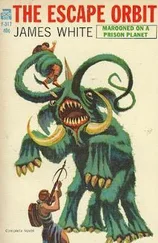James White - The Eighteen Christian Centuries
Здесь есть возможность читать онлайн «James White - The Eighteen Christian Centuries» — ознакомительный отрывок электронной книги совершенно бесплатно, а после прочтения отрывка купить полную версию. В некоторых случаях можно слушать аудио, скачать через торрент в формате fb2 и присутствует краткое содержание. Жанр: foreign_prose, История, foreign_edu, foreign_antique, на английском языке. Описание произведения, (предисловие) а так же отзывы посетителей доступны на портале библиотеки ЛибКат.
- Название:The Eighteen Christian Centuries
- Автор:
- Жанр:
- Год:неизвестен
- ISBN:нет данных
- Рейтинг книги:4 / 5. Голосов: 1
-
Избранное:Добавить в избранное
- Отзывы:
-
Ваша оценка:
- 80
- 1
- 2
- 3
- 4
- 5
The Eighteen Christian Centuries: краткое содержание, описание и аннотация
Предлагаем к чтению аннотацию, описание, краткое содержание или предисловие (зависит от того, что написал сам автор книги «The Eighteen Christian Centuries»). Если вы не нашли необходимую информацию о книге — напишите в комментариях, мы постараемся отыскать её.
The Eighteen Christian Centuries — читать онлайн ознакомительный отрывок
Ниже представлен текст книги, разбитый по страницам. Система сохранения места последней прочитанной страницы, позволяет с удобством читать онлайн бесплатно книгу «The Eighteen Christian Centuries», без необходимости каждый раз заново искать на чём Вы остановились. Поставьте закладку, и сможете в любой момент перейти на страницу, на которой закончили чтение.
Интервал:
Закладка:
“Malice domestic, foreign levy, nothing
Could touch him farther!”
No wonder those agreeable years were considered by the fond gratitude of the time, and the unavailing regrets of succeeding generations, the golden age of man. Nerva, Trajan, Adrian, Antoninus Pius, Marcus Aurelius Antoninus—these are still great names, and are everywhere recognised as the most wonderful succession of sovereigns the world has ever seen. They are still called the “Good Emperors,” the “Wise Rulers.”
It is easy, indeed, to be good in comparison with Nero, and wise in comparison with Claudius; but the effect of the example of those infamous tyrants made it doubly difficult to be either good or wise. The world had become so accustomed to oppression, that it seemed at first surprised at the change that had taken place. The emperors had to create a knowledge of justice before their just acts could be appreciated. The same opposition other men have experienced in introducing bad and cruel measures was roused by their introduction of wise and salutary laws. What! no more summary executions, nor forfeitures of fortunes, nor banishments to the Danube? All men equal before the dread tribunal of the imperial judge? The world was surely coming to an end, if the emperor did not now and then poison a senator, or stab his brother, or throw half a dozen courtiers to the beasts! It is likely enough that some of the younger Romans at first lamented those days of unlimited license and perpetual excitement; but in the course of time those wilder spirits must have died out, and the world gladly acquiesced in an existence of dull security and uninteresting peace. By the end of the reign of Trajan the records of the miseries of the last century must have been studied as curiosities—as historical students now look back on the extravagances and horrors of the French Revolution. Fortunately, men could not look forward to the times, more pitiable still, when their descendants should fall into greater sorrows than had been inflicted on mankind by the worst of the Cæsars, and they enjoyed their present immunity from suffering without any misgivings about the future. But a government which does every thing for a people renders it unable to do any thing for itself. The subject stood quietly by while the emperor filled all the offices of the State—guarded him, fed him, clothed him, treated him like a child, and reduced him at last to childlike dependence. An unjust proconsul, instead of being supported and encouraged in his exactions, was dismissed from his employment and forced to refund his ill-got gains,—the population, relieved from their oppressor, saw in his punishment the hand of an avenging Providence. The wakeful eye of the governor in Rome saw the hostile preparations of a tribe of barbarians beyond the Danube; and the legions, crossing the river, dispersed and subdued them before they had time to devastate the Roman fields. The peaceful colonist saw, in the suddenness of his deliverance, the foresight and benevolence of a divinity. No words were powerful enough to convey the sentiments of admiration awakened, by such vigour and goodness, in the breast of a luxurious and effeminate people; and accordingly, if we look a little closely into the personal attributes of the five good emperors, we shall see that some part of their glory is due to the exaggerations of love and gratitude.
Nerva reigned but sixteen months, and had no time to do more than display his kindness of disposition, and to name his successor. This was Trajan, a man who was not even a Roman by birth, but who was thought by his patron to have retained, in the distant province of Spain where he was born, the virtues which had disappeared in the centre and capital of the empire. The deficiency of Nerva’s character had been its softness and want of force. The stern vigilance of Trajan made ample amends. He was the best-known soldier of his time, and revived once more the terror of the Roman arms. He conquered wherever he appeared; but his warlike impetuosity led him too far. He trod in the footsteps of Alexander the Great, and advanced farther eastward than any of the Roman armies had previously done. But his victories were fruitless: he attached no new country permanently to the empire, and derives all his glory now from the excellence of his internal administration. He began his government by declaring himself as subordinate to the laws as the meanest of the people. His wife, Pompeia Plotina, was worthy of such a husband, and said, on mounting the steps of the palace, that she should descend them unaltered from what she was. The emperor visited his friends on terms of equality, and had the greatness of mind, generally deficient in absolute princes, to bestow his confidence on those who deserved it. Somebody, a member perhaps of the old police who had made such fortunes in the time of Domitian by alarming the tyrant with stories of plots and assassinations, told Trajan one day to beware of his minister, who intended to murder him on the first opportunity. “Come again, and tell me all particulars to-morrow,” said the emperor. In the mean time he went unbidden and supped with the accused. He was shaved by his barber—was attended for a mock illness by his surgeon—bathed in his bath—and ate his meat and drank his wine. On the following day the informer came. “Ah!” said Trajan, interrupting him in his accusation of Surenus, “if Surenus had wished to kill me, he would have done it last night.”
|A.D. 117.|
The emperor died when returning from a distant expedition in the East, and Pompeia declared that he had long designated Adrian as his successor. This evidence was believed, and Adrian, also a Spaniard by birth, and eminent as a military commander, began his reign. Trajan had been a general—a conqueror, and had extended for a time the boundaries of the Roman power. But Adrian believed the empire was large enough already. He withdrew the eagles from the half-subdued provinces, and contented himself with the natural limits which it was easy to defend. But within those limits his activity was unexampled. He journeyed from end to end of his immense domain, and for seventeen years never rested in one spot. News did not travel fast in those days—but the emperor did. Long before the inhabitants of Syria and Egypt heard that he had left Rome on an expedition to Britain, he had rushed through Gaul, crossed the Channel, inquired into the proceedings of the government officers at York, given orders for a wall to keep out the Caledonians, (an attempt which has proved utterly vain at all periods of English history, down to the present day,) and suddenly made his appearance among the bewildered dwellers in Ephesus or Carthage, to call tax-gatherers to order and to inspect the discipline of his troops. The master’s eye was everywhere, for nobody knew on what point it was fixed. And such a master no kingdom has been able to boast of since. His talents were universal. He read every thing and forgot nothing. He was a musician, a poet, a philosopher. He studied medicine and mineralogy, and plead causes like Cicero, and sang like a singer at the opera. Perhaps it is difficult to judge impartially of the qualities of a Roman emperor. One day he found fault on a point of grammar with a learned man of the name of Favorinus. Favorinus could have defended himself and justified his language, but continued silent. His friends said to him, “Why didn’t you answer the emperor’s objections?” “Do you think,” said the sensible grammarian, “I am going to enter into disputes with a man who commands thirty legions?” But the greatness of Adrian’s character is, that he did command those thirty legions. He was severe and just; and Roman discipline was never more exact. The result of this was shown on the grand scale only once during this reign, and that was in the case of the revolted Jews. We have seen the state to which their Temple at Jerusalem was reduced by Titus. Fifty years had now passed, and the passionate love of the people for their native land had congregated them once more within their renovated walls, and raised up another temple on the site of the old. They still expected the Messiah, for the Messiah to them represented vengeance upon the Romans and triumph over the world. An impostor of the name of Barcho-chebas led three hundred thousand of them into the field. They were mad with national hatred, and inspired with fanatical hope. It took three years of desperate effort to quell this sedition; and then Adrian had his revenge. The country was laid waste. Fifty towns and a thousand villages were sacked and burned. The population, once more nearly exhausted by war and famine, furnished slaves, which were sold all over the East. Jerusalem itself felt the conqueror’s hatred most. Its name was blotted out—it was called Ælia Capitolina; and, with ferocious mockery, over the gate of the new capital of Judea was affixed the statue of the unclean beast, the abomination of the Israelite. But nothing could keep the Jews from visiting the land of so many promises and so much glory. Whenever they had it in their power, they crept back from all quarters, if it were only to weep and die amid the ruins of their former power.
Читать дальшеИнтервал:
Закладка:
Похожие книги на «The Eighteen Christian Centuries»
Представляем Вашему вниманию похожие книги на «The Eighteen Christian Centuries» списком для выбора. Мы отобрали схожую по названию и смыслу литературу в надежде предоставить читателям больше вариантов отыскать новые, интересные, ещё непрочитанные произведения.
Обсуждение, отзывы о книге «The Eighteen Christian Centuries» и просто собственные мнения читателей. Оставьте ваши комментарии, напишите, что Вы думаете о произведении, его смысле или главных героях. Укажите что конкретно понравилось, а что нет, и почему Вы так считаете.












